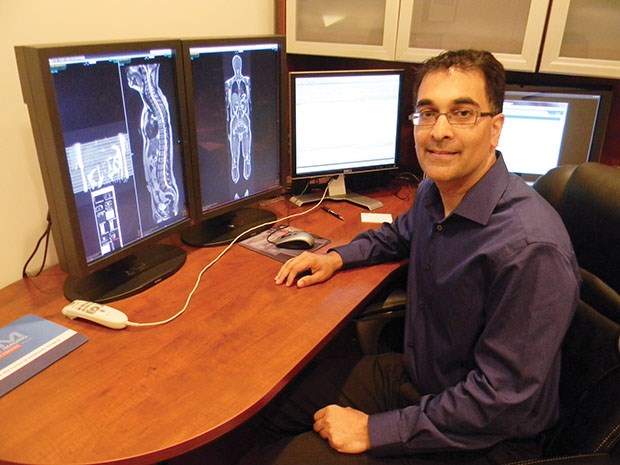A local man is hoping to give police a new tool to help in the fight again driving under the influence of drugs.
Ladner's Kal Malhi, a retired RCMP officer, has developed a roadside breathalyzer that can test for marijuana.
"It's a very new concept that breath testing can work for drugs," he said.
Malhi got the idea for the Cannabix Breathalyzer while doing some reading on a family trip to India late last year. While waiting at the airport, he came across a study out of Sweden about breath testing technology developed at Karolinska University in Solna.
Marijuana use can currently only be tested through collecting blood, urine or saliva samples, and police have no way to positively determine on the road that a driver is under the influence of drugs.
"It's hard to prove when somebody's high on drugs," he said. "The level of convictions on drugged driving is very low."
With his extensive policing experience, which included several years with a drug squad, Malhi was inspired to use the Swedish study results to give police a tool, similar to a portable roadside breath test for alcohol, to test for marijuana use.
The Swedish study showed that breath samples could be collected and sent to a lab for testing.
Malhi took his idea and teamed up with two doctors to try and make it a reality.
Vancouver based Dr. Raj Attariwala is the chief technology officer on the project. He is a radiologist and nuclear medicine physician with a background in biomedical engineering. He has worked closely with the breath testing technology developed by the Karolinska Institute and has several other medical device patents.
Dr. Bruce Goldberger is also on board as a technical advisor. A professor of toxicology at the University of Florida, Goldberg has done extensive research on forensic toxicology and completed numerous studies on the subject, including analysis of alcohol in breath and the measurement of drugs in biological tissue.
The result is the portable Cannabix Breathalyzer. Malhi said it is designed to function like a blood glucose meter, where the breath sample is collected in one component and then is fed into a second part of the device, which tests the sample and gives an immediate result.
Malhi said the device indicates if a person has consumed marijuana in the last two hours. The drug can still show up in blood, urine or saliva testing for several days after consumption so even with a positive test it is difficult for police to prove that a person was impaired by the drug at the time of driving.
Malhi said he could also see it being used in workplaces that carry out drug testing for employees.
After just six months of research and development, Malhi already has patents pending on the device and has signed on with a medical device manufacturer to develop a prototype.
He said he's hoping to have the Cannabix licensed in another six months and will look at marketing it in North America.
Malhi said many people, especially the younger generation, view driving after smoking marijuana as acceptable.
"Our society is changing our views on marijuana, it's becoming legalized in many states... young people have no fear of driving after smoking."



